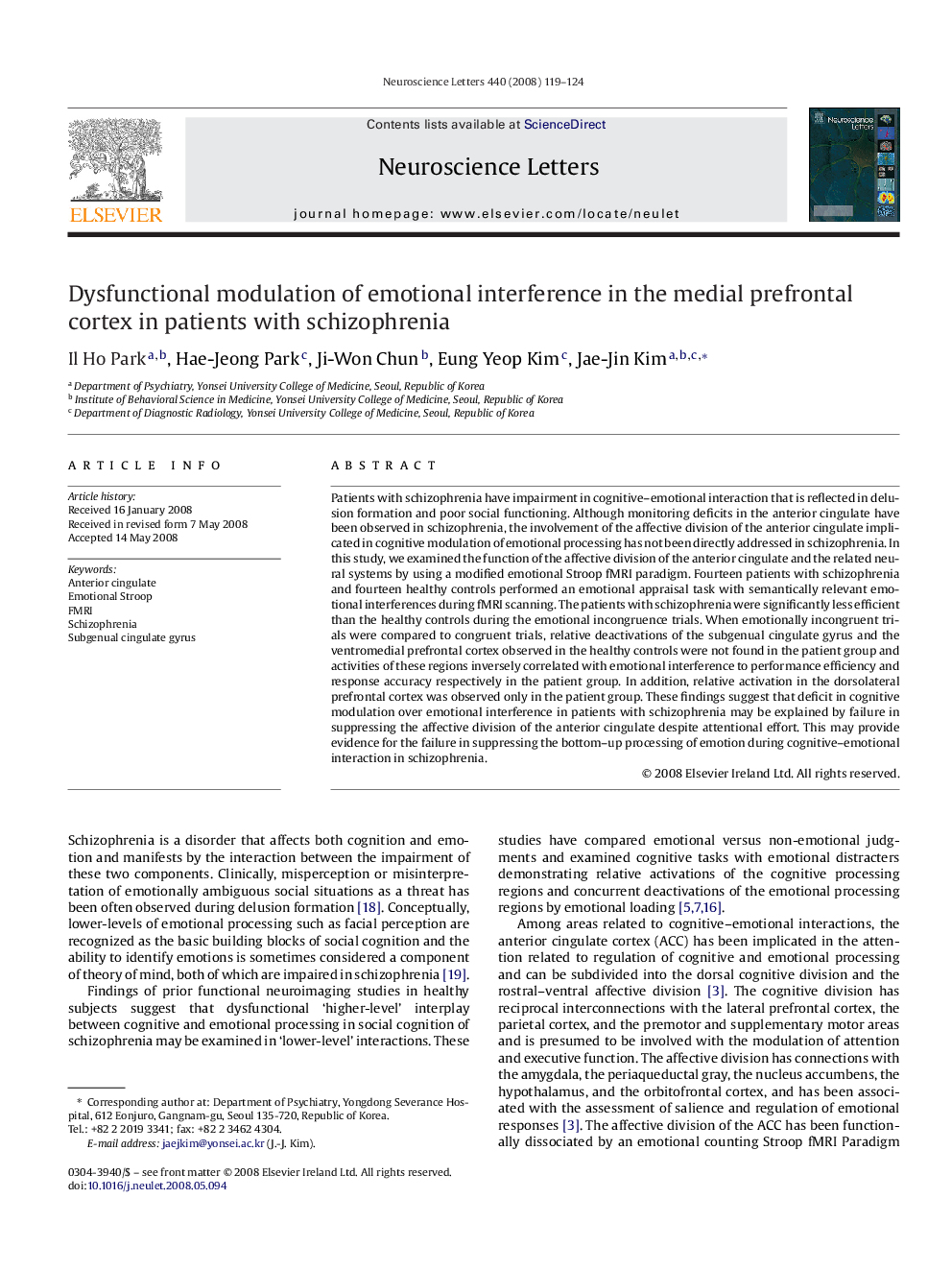| Article ID | Journal | Published Year | Pages | File Type |
|---|---|---|---|---|
| 4348161 | Neuroscience Letters | 2008 | 6 Pages |
Patients with schizophrenia have impairment in cognitive–emotional interaction that is reflected in delusion formation and poor social functioning. Although monitoring deficits in the anterior cingulate have been observed in schizophrenia, the involvement of the affective division of the anterior cingulate implicated in cognitive modulation of emotional processing has not been directly addressed in schizophrenia. In this study, we examined the function of the affective division of the anterior cingulate and the related neural systems by using a modified emotional Stroop fMRI paradigm. Fourteen patients with schizophrenia and fourteen healthy controls performed an emotional appraisal task with semantically relevant emotional interferences during fMRI scanning. The patients with schizophrenia were significantly less efficient than the healthy controls during the emotional incongruence trials. When emotionally incongruent trials were compared to congruent trials, relative deactivations of the subgenual cingulate gyrus and the ventromedial prefrontal cortex observed in the healthy controls were not found in the patient group and activities of these regions inversely correlated with emotional interference to performance efficiency and response accuracy respectively in the patient group. In addition, relative activation in the dorsolateral prefrontal cortex was observed only in the patient group. These findings suggest that deficit in cognitive modulation over emotional interference in patients with schizophrenia may be explained by failure in suppressing the affective division of the anterior cingulate despite attentional effort. This may provide evidence for the failure in suppressing the bottom–up processing of emotion during cognitive–emotional interaction in schizophrenia.
